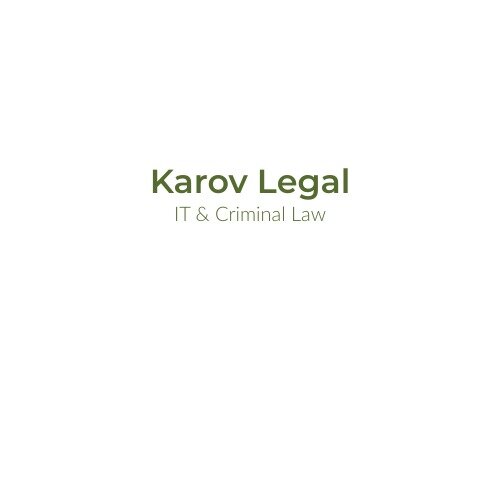Best Contract Lawyers in Serbia
Share your needs with us, get contacted by law firms.
Free. Takes 2 min.
Or refine your search by selecting a city:
List of the best lawyers in Serbia
Legal guides written by Business Law office - Advokatska Kancelarija:
- Why Invest In Serbia
About Contract Law in Serbia
In Serbia, contract law is a fundamental branch of civil law governing agreements and obligations between parties. It encompasses the rules and principles determining how contracts are formed, executed, and enforced. Serbian contract law is primarily governed by the Obligations Act, which sets out the general obligations and rights of the contracting parties. Contracts can be in written, oral, or implied forms, but certain agreements must be in writing to be enforceable.
Why You May Need a Lawyer
There are numerous situations where individuals and businesses might require legal assistance with contracts. Some of the most common include drafting or reviewing agreements to ensure they are legally sound and protect interests, interpreting complex contractual language, enforcing contracts when a party fails to meet their obligations, negotiating terms in a contract dispute, and defending oneself against claims of a breach. Lawyers can provide vital expertise and guidance in complex legal environments, decreasing the risk of litigation or financial loss.
Local Laws Overview
The key aspects of contract law in Serbia involve various elements essential for the validity of a contract such as consent, capacity, consideration, and lawful purpose. Contracts that do not meet these criteria may be declared void or voidable. Additionally, the performance, breach, termination, and voidability of contracts are core concepts governed under the Obligations Act. Specific laws apply to different types of contracts, such as sales, leases, loans, employment, and more, each with their particular requirements and conditions.
Frequently Asked Questions
What makes a contract valid in Serbia?
For a contract to be valid in Serbia, it must have consent from all parties, parties must have legal capacity, there must be a lawful object or purpose, and there must be consideration.
Are oral contracts enforceable in Serbia?
Yes, oral contracts are generally enforceable in Serbia; however, certain types of contracts, like real estate transactions, must be in writing to be valid.
What constitutes a breach of contract in Serbia?
A breach of contract occurs when a party fails to fulfill their contractual obligations without lawful excuse. This can result in remedies such as damages, specific performance, or contract termination.
Can I terminate a contract unilaterally?
Termination rights depend on the contract's terms and local laws. Many contracts include clauses specifying when and how a contract can be terminated by either party.
How are disputes over contracts resolved?
Disputes may be resolved through negotiation, mediation, arbitration, or litigation. The choice of method often depends on the contract's terms or the parties' preferences.
What should I do if the other party fails to comply with the contract?
You should consult with a legal professional to understand your rights and potential remedies, which may include seeking damages or enforcement through the courts.
What are consideration and its importance in a contract?
Consideration is something of value exchanged between parties. It's essential in ensuring that each party has a stake in the agreement, making a contract legally binding.
Is it necessary to notarize a contract in Serbia?
Not all contracts require notarization, but it's necessary for certain transactions like real estate deals or when required by law or parties for added security.
Are there any mandatory contract terms in Serbia?
Certain contracts, like consumer contracts, have mandatory provisions for protection, including clarity, fair terms, and transparency as regulated by law.
What is force majeure, and its implications in contracts?
Force majeure refers to unforeseeable circumstances preventing contract performance. It may relieve parties from liability if specified in the contract and according to Serbian law.
Additional Resources
For more information or assistance, consider contacting local law firms specializing in contract law. The Serbian Chamber of Commerce and Industry, the Ministry of Justice, and non-governmental organizations like the SerbianBusiness Registry can provide relevant guidance and resources.
Next Steps
If you require legal assistance with a contract in Serbia, it's advisable to consult a lawyer experienced in contract law. They can provide tailored advice, review your agreements, and represent your interests in disputes. Initial consultations can offer valuable insights into potential legal strategies. Be prepared with all relevant documents and information to make the most of your consultation.
Lawzana helps you find the best lawyers and law firms in Serbia through a curated and pre-screened list of qualified legal professionals. Our platform offers rankings and detailed profiles of attorneys and law firms, allowing you to compare based on practice areas, including Contract, experience, and client feedback.
Each profile includes a description of the firm's areas of practice, client reviews, team members and partners, year of establishment, spoken languages, office locations, contact information, social media presence, and any published articles or resources. Most firms on our platform speak English and are experienced in both local and international legal matters.
Get a quote from top-rated law firms in Serbia — quickly, securely, and without unnecessary hassle.
Disclaimer:
The information provided on this page is for general informational purposes only and does not constitute legal advice. While we strive to ensure the accuracy and relevance of the content, legal information may change over time, and interpretations of the law can vary. You should always consult with a qualified legal professional for advice specific to your situation.
We disclaim all liability for actions taken or not taken based on the content of this page. If you believe any information is incorrect or outdated, please contact us, and we will review and update it where appropriate.
Browse contract law firms by city in Serbia
Refine your search by selecting a city.

















